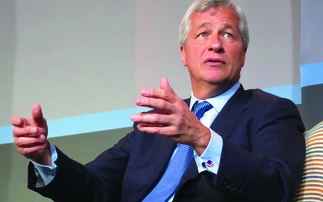Equities markets continued their vigorous post-March rally in the third quarter as the realities of COVID-19 continued to dictate daily conduct for individuals, businesses, and governments around the world. Behaviors that seemed disorienting and disruptive in the spring became routine throughout the summer and early fall. Work-from-home remained the standard while countries and enterprises experimented tentatively with reopenings. Global infection rates reflected varying policy and social behaviors. Developing a vaccine remained an overwhelming focus, with both human and capital resources deployed to a number of promising approaches.
While COVID-19 continues to disrupt activity around the globe, we are optimistic that promising results from a number of clinical trials will result in an effective vaccine in the coming months, although it may be another 12-18 months before a finished product—the likely prerequisite for a broad-based recovery in confidence and activity—is globally available.
The U.S. economy continues to recover from the worst effects of the pandemic, but the pace of the rebound appears to be moderating. Recent economic data (both hard, soft, and leading) indicate a V-shaped recovery is occurring in the U.S. and around the world, driving strong earnings versus expectations going into the quarter. Corporate-profit recovery is set to continue, aided by reduced labor and travel costs that further expand profit-margin opportunities. However, the outlook overall remains uncertain, not least because of the U.S. presidential election and the pandemic's ongoing impact.
SECTOR VIEWS
The market broadened out in the third quarter. Consumer discretionary and information technology continued to lead but were joined by cyclical materials and industrials sectors at the top. While growth stocks continued to lead the market and significantly outperformed value stocks across capitalizations, they surrendered a portion of their advances in September over concerns about the valuation of future growth potential in the short term. At the same time, businesses most negatively affected by the pandemic, including leisure and travel, stabilized as the worst of the activity declines moderated, although overall depressed levels persisted.
All in, investors have demonstrated their preference for businesses that were thriving before COVID-19 and that have benefitted from pandemic-related tailwinds and enhanced competitive positions. Although sectors whose share prices and operating fundamentals have been disproportionately hit by the disease will likely experience a relief rally once distribution of a vaccine begins, a return to pre-COVID operating rates will probably not transpire for some time thereafter.
|
Information Technology
|
The tech sector rose 12.0% in the third quarter, outperforming the overall index, which advanced 8.9%. Large-cap tech stocks and a group of smaller, faster growers that enjoy some of the tech-enabled benefits of their larger peers sold off in early September. As these stocks have made major positive moves over the last several months, we believe the sell-off was most likely the result of normal profit-taking and price consolidation. Recent technology sector earnings reports continue to be strong, confirming the underlying strength of technology company business models. We believe the market should continue to favor companies with asset-light business models and faster organic growth in the current COVID-induced environment. |
|
Health Care |
The health care sector rose 5.9% in the third quarter, underperforming the overall index, which advanced 8.9%. Efforts to develop a vaccine for COVID-19 are advancing on many fronts, with new data becoming available virtually every day. Meanwhile, U.S. presidential candidates' health care views are coming into focus. Democratic nominee and former Vice President Biden is focusing on rebuilding the supply chain and implementing tax incentives to move drug manufacturing back to the U.S. He is also looking at direct government negotiations for some drug prices. He favors expanding health care coverage and combatting inequality with a public insurance option that would be offered to all Americans on a sliding scale according to income and lowering the eligibility age for Medicare coverage from 65 to 60. Details have yet to be presented, but we think expanded coverage is generally a positive for most health care sectors; hospitals could be negatively affected if the mix of reimbursement shifts away from commercial to Medicare rates. Trump's purported focus is on making drug pricing in the U.S. more in line with pricing elsewhere in the world, lowering prescription drug costs for older Americans, and opening the door for drug reimportation—an idea not historically embraced by the FDA. |
|
Financials |
Despite returning 4.5% in the third quarter, the financial sector is one of the worst-performing sectors in 2020, down 20% year-to-date versus the S&P 500, which is up 5.6%. The drastic fall in interest rates and uncertainty around credit quality have affected both fundamentals and market expectations. The volatility in index performance has been extreme, both during the market sell-off and subsequent rally off the bottom. While government action early on in the COVID crisis and the subsequent re-opening of certain parts of the economy have served to mitigate the declines in the sector's performance, there are still too many macro uncertainties to provide a meaningful outlook for financials over the near to medium term. |
|
Midstream Infrastructure |
After rallying off the bottom from March lows in the second quarter, midstream infrastructure flatlined over the third quarter. The group struggled on worries of sluggish global economic activity, the potential for further COVID-19 lockdowns, and the impact to overall demand. But as the U.S. economy continues to open and economic activity slowly ramps up, we remain optimistic given the significant transformational corporate reform that has been occurring in the midstream sector over the past few years, which was already having long-term positive benefits. Although it's difficult to predict short-term outcomes, over the longer term we believe the large integrated, reformed companies will survive. |
|
Utilities |
While the utility sector's 6.1% return in the third quarter underperformed the broader index return of 8.9%, the sector's fundamentals have held up better relative to other value-oriented sectors such as energy and financials. While market participants have shifted their attention to potential policy implications from the U.S. presidential election and broader macro uncertainty, we continue to find the sector attractive given the ultra-low bond rate environment and predictable fundamentals. Utility companies' ability to execute operationally by delivering on earnings guidance and de-risking their portfolios, along with the potential growth opportunities from renewable energy investments could drive the sector going forward. |
For Professional Investors only. All investments involve risk, including the possible loss of capital.
This financial promotion is issued by PGIM Limited, authorised and regulated by the Financial Conduct Authority (FCA registration number 193418) of the United Kingdom. In the United Kingdom, business activities are conducted by PGIM Limited, which is an indirect, wholly-owned subsidiary of PGIM, Inc. ("PGIM" and the "Investment Manager"). These materials are issued by PGIM Limited to persons who are professional clients or eligible counterparties as defined in Directive 2014/65/EU (MiFID II), investing for their own account, for fund of funds, or discretionary clients. PGIM Limited's registered address is at Grand Buildings, 1-3 Strand, Trafalgar Square, London, WC2N 5HR, United Kingdom. PGIM is the principal asset management business of Prudential Financial, Inc. (PFI), a company incorporated and with its principal place of business in the United States. PFI of the United States is not affiliated with Prudential plc, incorporated in the United Kingdom or with Prudential Assurance Company, a subsidiary of M&G plc, incorporated in the United Kingdom.
References to specific securities and their issuers are for illustrative purposes only and are not intended and should not be interpreted as recommendations to purchase or sell such securities. The securities referenced may or may not be held in the portfolio at the time of publication and, if such securities are held, no representation is being made that such securities will continue to be held.
The views expressed herein are those of Jennison Associates' investment professionals at the time the comments were made, may not be reflective of their current opinions, and are subject to change without notice. Neither the information contained herein nor any opinion expressed shall be construed to constitute investment advice or an offer to sell or a solicitation to buy any securities mentioned herein. Neither PFI, its affiliates, nor their licensed sales professionals render tax or legal advice. Clients should consult with their attorney, accountant, and/or tax professional for advice concerning their particular situation. Certain information in this commentary has been obtained from sources believed to be reliable as of the date presented; however, we cannot guarantee the accuracy of such information, assure its completeness, or warrant such information will not be changed. The information contained herein is current as of the date of issuance (or such earlier date as referenced herein) and is subject to change without notice. The manager has no obligation to update any or all such information; nor do we make any express or implied warranties or representations as to the completeness or accuracy.
Any projections or forecasts presented herein are subject to change without notice. Actual data will vary and may not be reflected here. Projections and forecasts are subject to high levels of uncertainty. Accordingly, any projections or forecasts should be viewed as merely representative of a broad range of possible outcomes. Projections or forecasts are estimated based on assumptions, subject to significant revision, and may change materially as economic and market conditions change.
© 2020 Prudential Financial, Inc. ('PFI') of the United States and its related entities. PGIM and the PGIM logo are service marks of PFI and its related entities, registered in many jurisdictions worldwide.1041566-00001-00













